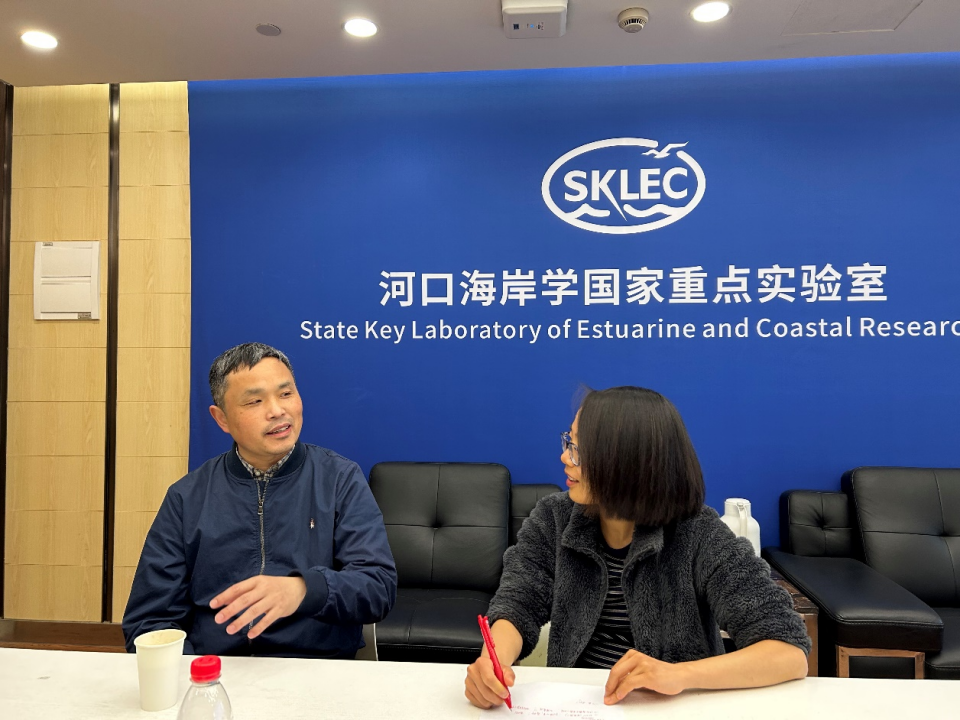Prof. Weiguo Zhang, a researcher at the State Key Laboratory of Estuarine and Coastal Research, East China Normal University, is a member of the FEC Academy of Future Earth Coasts. He obtained his bachelor’s degree in 1992, master’s degree in 1995, and Ph.D. degree in 2001, all in Geography from East China Normal University. His research focuses on the interaction between humans and nature in coastal zones, aiming to better understand the complexity of dynamic delta-estuarine systems and support the sustainable development of coastal zones. His recent research includes the evolution of deltas, sediment source-sink tracing, coastal pollution, and the relationship between ecosystem services and social development. He advocates the use of scientific observations and interdisciplinary research tools such as sedimentology, geomorphology, environmental magnetism, geochemical methods, and social science-based approaches. He has led several national research projects, published many high-level academic papers, presented at domestic and international academic conferences, and also led and participated in various international collaborative projects.
1. How did you embark on your research career?
In the early 1990s, China entered a new phase of opening up, and our generation was fortunate to be part of that era. I was admitted to the Department of Geography at East China Normal University in 1988. According to what our dean said in during the entrance education, it was the largest geography department in Asia at that time. He also emphasized the presence of renowned scholars, leaving a deep impression on me. Professor Yu Lizhong had just returned to China after obtaining his Ph.D. from the University of Liverpool in the UK. Fortunately, I had the opportunity to pursue my master’s degree under his guidance after finishing my undergraduate studies in 1992. Subsequently, I continued my work at East China Normal University and pursued a Ph.D. degree. Early in my career, I was fortunate to be involved in a collaborative project “Monitoring and Management of the Coastal Environment”, which was chaired by Professor Yu and Dr. S. M. Hutinson, under the support of the British Council,at the beginning of my career. This opportunity allowed me to go abroad and participate in international research and academic exchanges.
2. What role has your mentor played in your research and academic career or life?
I am still deeply influenced by the optimism of Prof Yu. Everyone will encounter some setbacks, but with the progress of society, I believe that the personal difficulties will not be more than the predecessors.
3. What do you find most fulfilling as a scientist?
Using scientific theories and research methods to explain the underlying causes of natural phenomena satisfies our curiosity as human beings and serves as an encouragement for individuals. In terms of methodology, the application of environmental magnetic methods to characterize various environmental media to reveal environmental processes and changes, such as estuarine and coastal sediments, marine sediments, lake sediments, and loess, haspromoted the application of environmental magnetism in China. From the point of addressing geoscience questions, progress has been made in understanding the evolution processes and mechanisms of deltas at the Holocene-Anthropocene scale, with the help of reliable dating and sediment provenance ascription.
4. What is the most forward-looking research in your field that has been conducted so far? Or what is the future direction research in this field?
Spatial and temporal scales are of significant importance in geomorphological studies in estuarine and coastal regions. Often, engineering projects focus on localized issues, neglecting the comprehensive understanding of temporal and spatial processes that can lead to unforeseen consequences conflicting with human expectations. This, in turn, can hinder the sustainable development of human society. I strongly agree with the concept of “building with nature,” which is in accordance with the ancient Chinese philosophy. When conducting research in estuarine and coastal areas, it is essential to pay attention to the spatiotemporal scales, emphasize the acquisition of long-term datasets and high-resolution spatial analyses, and prioritize the application of remote sensing and other important tools. For sedimentology and geomorphology studies, chronology is the foundation and that is why the State Key Laboratory of Estuarine and Coastal Research built its chronology laboratory, without which there is no way to discuss geomorphological processes.
5. What do you do in your spare time?
In my spare time, I enjoy watching movies and listening to the radio, including news channels, music, operas, etc. I also like reading books, such as novels, biographies, and books on historical topics and humanities.
6. What would be your ideal career if you were not a scientist?
A librarian or film projectionist.
7. Would you like to give some advice to young scientists?
My advice for young scientists is to specialize in their own research field, but also keep an open mind and explore other areas of interest. Listening to academic presentations or lectures by other researchers can be inspiring and help broaden your horizons. Interdisciplinary collaboration is advocated more than ever nowadays so that you can learn from others, improve communication, conduct collaborations, and inspire each other. Additionally, it is important to recognize that scientific research should serve the needs of society. The State Key Laboratory of Estuarine and Coastal Research has had this good tradition since the beginning of its development, and it is the same abroad. For example, the Ecosystem Services for Poverty Alleviation (ESPA) program, a joint initiative of the UK Foreign, Commonwealth & Development Office and other relevant departments I participated in several years ago, exemplify how scientific research can be applied to address social challenges, such as poverty alleviation in developing countries.
Pitch note – FEC Dialogue with Academy Members: https://www.futureearthcoasts.org/fec-dialogue-with-academy-members/

